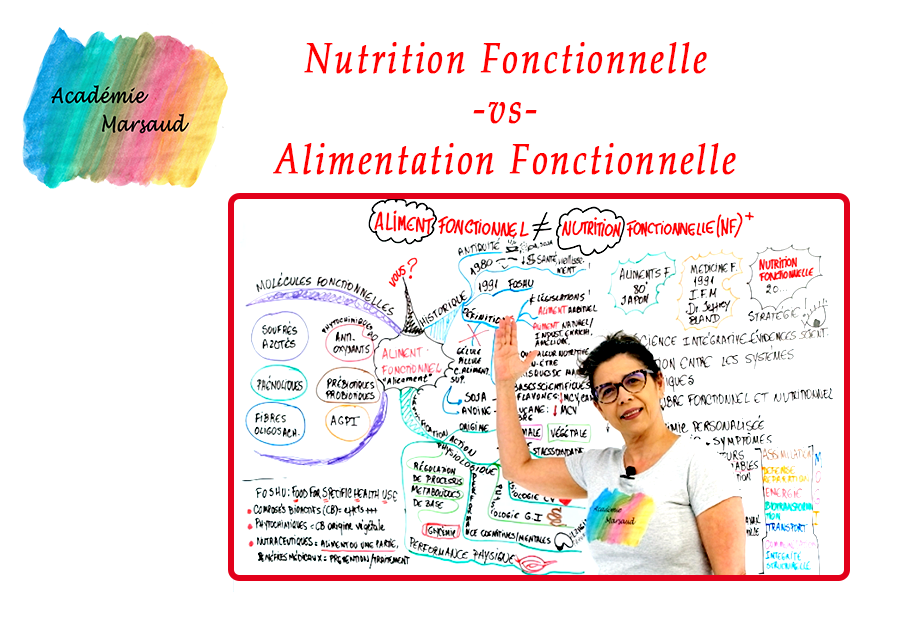A revolution in nutritional care is underway. Culina Health is partnering with Adventist HealthCare. This alliance aims to expand access to insurance-covered nutritional care.
Thanks to this strategic partnership, members of the Adventist HealthCare Physician Alliance will have direct access to dietitians from Culina Health. Patients will be able to benefit from personalized nutritional advice online, facilitating quick and effective care. The company’s dietitians, specializing in areas such as diabetes, menopause, sustainable weight loss, and oncological nutrition, will provide support tailored to each patient’s specific needs. Mary Kim, Vice President of Population Health at Adventist HealthCare, emphasizes the importance of good nutrition in managing chronic conditions and improving overall health. Alliance physicians can now refer their patients directly to these services via the Electronic Health Record (EHR), ensuring a seamless integration of nutritional care into the health journey. Vanessa Rissetto, CEO of Culina Health, highlights the ease of access and the absence of a waiting list, allowing patients to connect with a personal dietitian in less than a week. This initiative promises to transform the way nutritional care is delivered, making these essential services accessible to a larger number of people.

adventist healthcare partners with culina health to revolutionize nutritional care
The healthcare sector is experiencing significant evolution thanks to innovation and strategic partnerships. Recently, Adventist HealthCare announced a major collaboration with Culina Health, a company specializing in digital nutrition. This alliance aims to improve access to nutritional care for patients by integrating personalized and insurance-covered nutritional counseling services. This partnership promises to transform the way nutritional care is delivered, focusing on prevention and the management of chronic conditions.
what are the goals of this partnership between adventist healthcare and culina health?
The main objective of this collaboration is to expand access to nutritional care for Adventist HealthCare patients. By integrating Culina Health into the Adventist HealthCare Physician Alliance, a clinically integrated network of over 2,400 providers, patients will be able to benefit from virtual and personalized nutritional advice directly from their primary care physicians. This approach aims not only to improve patients’ health and well-being but also to reduce medical complications associated with conditions like diabetes, obesity, and cardiovascular diseases.
how does this partnership facilitate access to nutritional care?
Thanks to this collaboration, alliance members and their patients will have direct access to the dietitians from Culina Health. Physicians can now refer their patients to Culina Health’s dietitians directly through the electronic health record (EHR) system, simplifying the referral process. Vanessa Rissetto, CEO of Culina Health, points out that this system allows patients to be connected to a personal dietitian in less than a week, with no waiting list, and to benefit from insurance coverage advice, a quick registration, and virtual care from the comfort of their homes.
what specific services does culina health offer in this partnership?
Culina Health offers a range of nutritional counseling services tailored to the specific needs of patients. The company’s dietitians are trained to provide specialized advice, particularly for managing diabetes, menopause, sustainable weight loss, and nutrition in cancer cases. These services are designed to customize the nutritional approach based on patients’ medical conditions and individual goals, thereby contributing to better management of their overall health.
what impact does this partnership have on the healthcare system and patients?
This partnership delivers significant benefits both for the healthcare system and for patients. For the system, it translates into cost savings through the reduction of complications, shorter hospital stays, and lower readmission rates. For patients, the improved access to nutritional services allows for a proactive management of their health, promoting daily changes that lead to a healthier life. Additionally, the integration of Culina Health services within the clinical alliance increases awareness and availability of nutritional services among the more than 2,400 providers in the network.
what are the success indicators of this partnership?
To evaluate the effectiveness of this partnership, Culina Health will track several key performance indicators. These include weight loss, reduction in A1c levels, decreased cholesterol, and lowered systolic blood pressure. These metrics will measure the direct impact of nutritional services on patients’ health. Concurrently, for Adventist HealthCare, indicators such as reduced medical complications, shorter hospital stays, and decreased readmission rates will be essential for assessing the savings achieved and the improvement in care.
how does this partnership align with culina health’s overall mission?
This partnership is a key element of Culina Health‘s mission to make nutritional care accessible to everyone. By collaborating with a large clinical network like Adventist HealthCare, Culina Health can extend its reach and raise awareness among a greater number of people about the importance of functional nutrition as a complement to preventive medicine. Vanessa Rissetto emphasizes that working with healthcare systems is crucial to achieving the goal of providing expert nutritional care to a diverse audience, thereby enhancing the positive impact on public health.
what are the future prospects for this partnership?
In the future, this partnership paves the way for a deeper integration of nutritional services into primary healthcare. With the growing awareness of the benefits of functional nutrition and personalized approaches, Adventist HealthCare and Culina Health plan to expand their services to include new specializations and technologies. Moreover, by leveraging the data collected through tracking performance indicators, both organizations will be able to refine their strategies and offer even more effective and tailored care to patients’ needs. This collaboration serves as an exemplary model of how innovative partnerships can transform healthcare and improve the quality of life for individuals.
how does nutrition contribute to the management of chronic diseases?
Nutrition plays a crucial role in the management of chronic diseases, and this partnership is tangible proof of that. A healthy and balanced diet can help to control diabetes, reduce menopause symptoms, promote sustainable weight loss, and support nutrition in cancer patients. By offering personalized consultations, Culina Health empowers patients to receive tailored advice for their specific conditions, facilitating a better management of their health on a daily basis. For more information on the importance of nutrition in different medical contexts, you can consult resources such as Functional nutrition: a complement to preventive medicine.
what role does technology play in this partnership?
Technology is at the heart of this partnership, facilitating access to nutritional care through advanced digital platforms. Culina Health uses telehealth tools to offer virtual consultations, allowing patients to receive nutritional advice without needing to travel. This digital approach not only increases accessibility but also enables continuous and personalized follow-up care. Furthermore, integration into Adventist HealthCare’s electronic health record (EHR) system ensures seamless coordination among care providers, thereby enhancing the effectiveness of nutritional interventions.
how does this partnership influence health prevention?
By focusing on preventive nutrition, this partnership helps to prevent the onset of chronic diseases or mitigate their effects. Adequate nutrition is an essential component of health prevention, and by making nutritional counseling services more accessible, Adventist HealthCare and Culina Health enable patients to adopt healthy eating habits before health issues arise. This can reduce the need for costly medical treatments and improve individuals’ quality of life in the long term. To further explore preventive approaches, consult articles such as Functional nutrition: a complement to preventive medicine.
what are the benefits for physicians and healthcare providers?
Physicians and healthcare providers also benefit from this partnership through better case management and complementary support for their patients. By accessing Culina Health’s dietitians via the EHR system, providers can easily integrate nutritional advice into their treatment plans, thereby offering a more holistic and integrated approach to care. Mary Kim, Vice President of Population Health at Adventist HealthCare, stated that providers are excited to have Culina Health as a member of the alliance, as this enriches the available resources to improve the health and well-being of patients.
how does this partnership address accessibility challenges in nutrition?
One of the major challenges in nutrition is accessibility. According to Vanessa Rissetto, only 0.02% of Americans have worked with a dietitian, primarily due to accessibility issues. This partnership aims to overcome these barriers by offering nutritional services covered by insurance and simplifying the referral process. Additionally, by providing virtual consultations, Culina Health enables a larger number of patients to access nutritional advice without geographical or economic constraints. To learn more about the benefits of accessibility in nutrition, visit Is sesame oil beneficial for health? Discover why you should definitely add it to your cart on your next grocery trip.
how does the training of culina health’s dietitians strengthen this partnership?
The dietitians at Culina Health receive specialized training that prepares them to offer high-quality nutritional advice tailored to various health conditions. This expertise is essential to meet the unique needs of Adventist HealthCare patients, whether it involves managing diabetes, menopause, or providing appropriate nutrition in cancer cases. Furthermore, this ongoing training ensures that dietitians remain at the forefront of the latest research and innovations in nutrition, thereby enhancing the effectiveness of the care provided and the overall success of the partnership.
what success stories can inspire this partnership?
Several case studies and successful initiatives can serve as inspiration for this partnership. For example, new approaches in bariatric surgery and the management of associated complications highlight the importance of a comprehensive care model that includes nutrition. You can read a relevant example here: New approaches in bariatric surgery: evaluation of techniques and management of complications. Similarly, innovations in cardiac rehabilitation shed light on how tailored nutritional protocols can improve patient outcomes. These examples demonstrate the potential of integrated collaborations to enhance care and health outcomes.
how does this initiative align with current health trends?
This initiative aligns perfectly with current health trends that emphasize prevention, personalization of care, and the integration of digital technologies. The growing prominence of telehealth solutions and personalized nutrition approaches reflects an evolution toward more accessible and patient-centered care. By integrating Culina Health’s services through Adventist HealthCare, this partnership harnesses these trends to offer optimized nutritional care, thus supporting a broader improvement in public health and a more effective management of chronic diseases.
The alliance between Adventist HealthCare and Culina Health marks a significant advancement in the field of nutritional care. By incorporating Culina Health’s services into its network, Adventist HealthCare expands access to personalized and insurance-covered dietary consultations, addressing the growing healthcare needs of patients.
This collaboration enables alliance members and their patients to benefit from direct access to Culina Health’s dietitians, offering virtual nutritional advice tailored to various health conditions such as diabetes, menopause, sustainable weight loss, and nutrition in oncology. This personalized approach fosters effective management of chronic conditions and enhances patients’ overall well-being.
By facilitating direct referral to dietitians through the electronic health record (EHR) system, Adventist HealthCare simplifies the process of accessing nutritional care. Patients can connect with a personal dietitian in less than a week, with no waiting list, and receive advice from the comfort of their homes. This increased accessibility addresses a major issue, as only 0.02% of Americans have previously consulted a dietitian due to accessibility barriers.
The shared goal of both organizations is to raise awareness among more people about the benefits of nutritional consultations and to demonstrate that these services can be low-cost or free through health plans. By measuring indicators such as weight loss, reduction in A1c, cholesterol, and systolic blood pressure, Culina Health and Adventist HealthCare ensure the effectiveness of this partnership.
In summary, this strategic collaboration reinforces Culina Health’s mission to make expert nutritional care available to all, while providing Adventist HealthCare with innovative solutions to improve its patients’ health outcomes. Together, they lay the foundation for a future where quality nutrition is a central pillar of well-being and chronic disease management.











